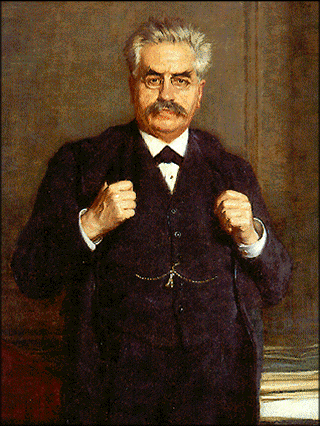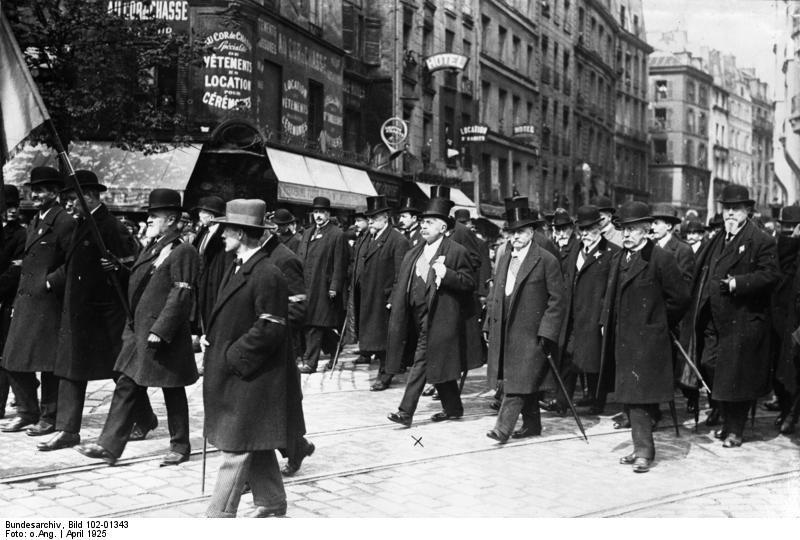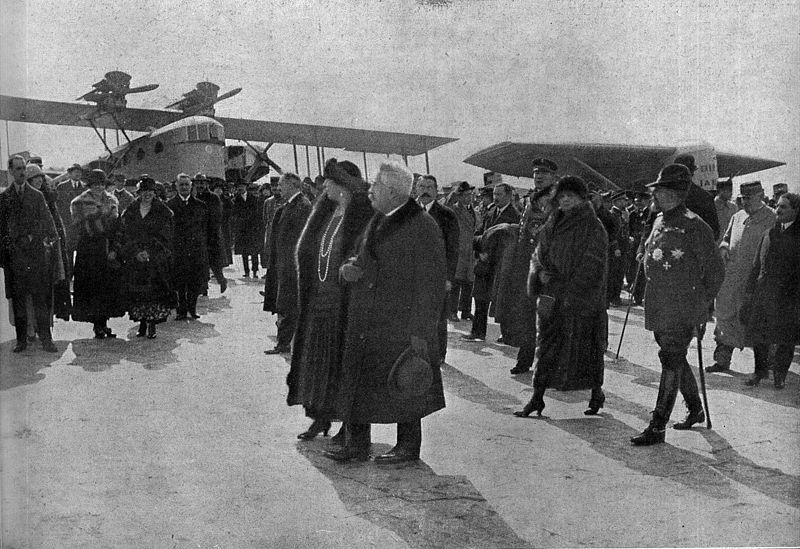<Back to Index>
- Président de la
République Française Alexandre Millerand,
1859
PAGE SPONSOR
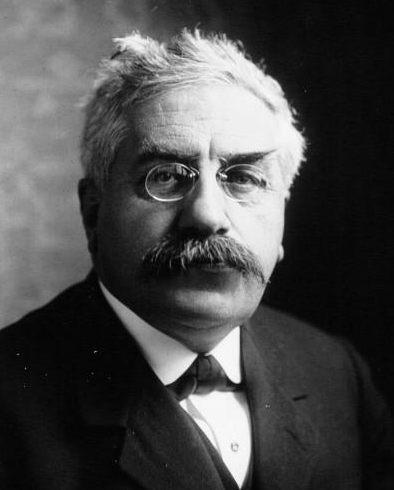
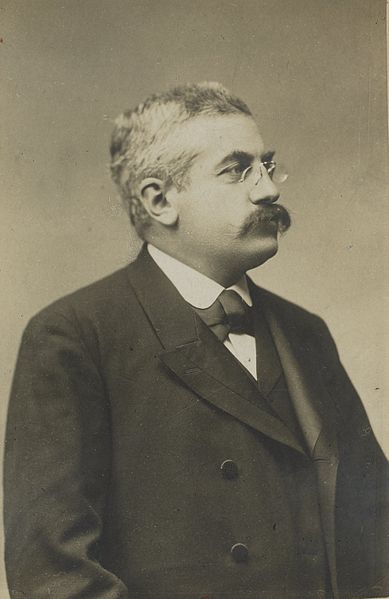
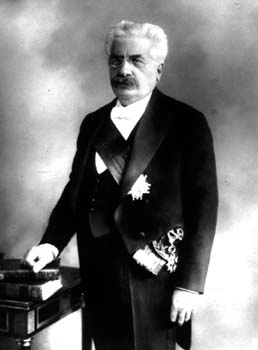
Alexandre Millerand (10 February 1859 - 6 April 1943) was a French socialist politician. He was President of France from 23 September 1920 to 11 June 1924 and Prime Minister of France 20 January to 23 September 1920. His participation in Waldeck - Rousseau's cabinet at the start of the 20th century, alongside the marquis de Galliffet who had directed the repression of the 1871 Paris Commune, sparked a debate in the French Section of the Workers' International (SFIO) and in the Second International about the participation of socialists in "bourgeois governments".
Born in Paris, he was educated for the bar, and made his reputation by his defense, in company with Georges Laguerre, of Ernest Roche and Duc - Quercy, the instigators of the strike at Decazeville in 1883; he then took Laguerre's place on Georges Clemenceau's paper, La Justice. He was elected to the Chamber of Deputies for the Seine département in 1885 as a Radical Socialist. He was associated with Clemenceau and Camille Pelletan as an arbitrator in the Carmaux strike (1892). He had long had the ear of the Chamber in matters of social legislation, and after the Panama scandals had discredited so many politicians his influence grew.
He was chief of the Socialist faction (the Parti Socialiste de France in 1899), a group which then mustered sixty members, and edited until 1896 their organ in the press, La Petite République. His program included the collective ownership of the means of production and the international association of labour, but, when in June 1899 he entered Pierre Waldeck - Rousseau's cabinet of "republican defense" as Minister of Commerce, he limited himself to practical reforms, devoting his attention to the improvement of the mercantile marine, to the development of trade, of technical education, of the postal system, and to the amelioration of the conditions of labor. Labor questions were entrusted to a separate department, the Direction du Travail, and the pension and insurance office was also raised to the status of a "direction".
As labor minister, Millerand was responsible for the introduction of a wide range of reforms, including the reduction in the maximum workday from 11 to 10 hours in 1904, the introduction of an 8 hour workday for postal employees, the prescribing of maximum hours and minimum wages for all work undertaken by public authorities, the bringing of worker’s representatives into the Conseil supérieur de travail, the establishment of arbitration tribunals and inspectors of labor, and the creation of a labor section inside his Ministry of commerce to tackle the problem of social insurance.
The introduction of trade union representatives on the Supreme Labor Council, the organization of local labor councils, and the instructions to factory inspectors to put themselves in communication with the councils of the trade unions, were valuable concessions to labor, and he further secured the rigorous application of earlier laws devised for the protection of the working class. His name was especially associated with a project for the establishment of old age pensions, which became law in 1905. In 1898, he became editor of La Lanterne.
His influence with the far
left had already declined, for it was said that
his departure from the true Marxist tradition had
disintegrated the party. He was expelled from the group,
and continued to move to the right,
being appointed Prime Minister by the conservative
President Paul Deschanel.
When Deschanel had to resign later that year due to his mental disorder, Millerand emerged as a compromise candidate for President between the Bloc National and the remnants of the Bloc des gauches. Millerand appointed Georges Leygues, a politician with a long career of ministerial office, as Prime Minister and attempted to strengthen the executive powers of the Presidency. This move was resisted in the Chamber of Deputies and the French Senate, and Millerand was forced to appoint a stronger figure, Aristide Briand. Briand's appointment was welcomed by both left and right, although the Socialists and the left wing of the Radical Party did not join his government. However, Millerand dismissed Briand after just a year, and appointed the conservative republican Raymond Poincaré.
Millerand was accused of favoring conservatives in spite of the traditional neutrality of French Presidents and the composition of the legislature. On 14 July 1922, Millerand escaped an assassination attempt by Gustave Bouvet, a young French anarchist. Two years later, Millerand resigned in the face of growing conflict between the elected legislature and the office of the President, following the victory of the Cartel des Gauches. Gaston Doumergue, who was the president of the Senate at the time, was chosen to replace Millerand.
Alexandre Millerand died in 1943 at Versailles, and was interred
in the Passy Cemetery.
